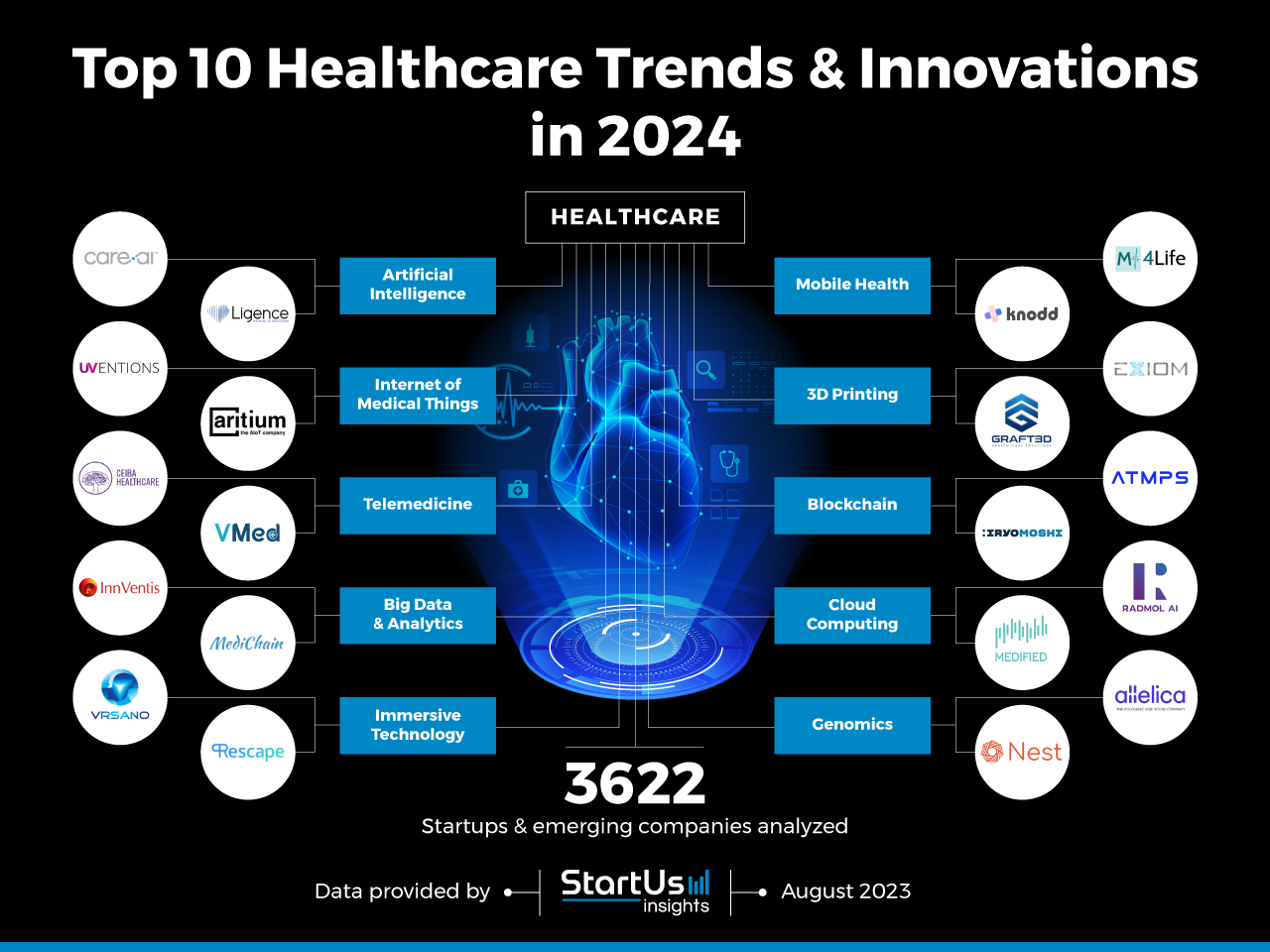Market Trends and Developments: Business News In Healthcare Industry
Business News in Healthcare Industry – The business news landscape in the healthcare industry is rapidly evolving, driven by advancements in technology, shifting patient demographics, and regulatory changes. Here are some key trends shaping the sector:
Emergence of Digital Health:Digital health technologies, such as telemedicine, wearable devices, and health apps, are transforming healthcare delivery. They provide patients with greater access to care, convenience, and personalized experiences. Healthcare providers are embracing these technologies to improve patient outcomes, reduce costs, and streamline operations.
Artificial Intelligence and Machine Learning
Artificial intelligence (AI) and machine learning (ML) are revolutionizing healthcare data analysis, drug discovery, and personalized medicine. AI-powered algorithms can analyze vast amounts of data to identify patterns, predict outcomes, and make informed decisions. This technology has the potential to improve diagnosis accuracy, optimize treatment plans, and accelerate the development of new therapies.
Value-Based Care
The healthcare industry is shifting towards value-based care models, where providers are rewarded for delivering high-quality, cost-effective care. This approach emphasizes patient outcomes, preventive care, and collaboration among healthcare professionals. Value-based care models are driving innovation in healthcare delivery and encouraging providers to focus on improving patient health and satisfaction.
Industry Analysis and Competitive Dynamics
The healthcare industry is a highly competitive market, with numerous players vying for market share. Key players in the industry include pharmaceutical companies, medical device manufacturers, healthcare providers, and insurance companies. These companies are constantly innovating and developing new products and services to meet the evolving needs of patients and healthcare professionals.
The competitive dynamics in the healthcare industry are constantly shifting. Mergers, acquisitions, and partnerships are common, as companies seek to gain market share and expand their product offerings. The regulatory environment also plays a significant role in shaping the industry, as governments implement policies that impact healthcare costs, access to care, and the development of new technologies.
Key Players and Market Share
- Pfizer (10% market share)
- Johnson & Johnson (9% market share)
- Roche (8% market share)
- Novartis (7% market share)
- Sanofi (6% market share)
Competitive Dynamics
The healthcare industry is highly competitive, with companies constantly vying for market share. This competition has led to a number of mergers, acquisitions, and partnerships in recent years, as companies seek to gain scale and expand their product offerings.
One of the most notable recent mergers in the healthcare industry was the acquisition of Medtronic by Johnson & Johnson in 2016. This deal created a healthcare behemoth with a combined market capitalization of over $300 billion.
Another major trend in the healthcare industry is the rise of partnerships between pharmaceutical companies and medical device manufacturers. These partnerships allow companies to pool their resources and expertise to develop new products and technologies that meet the needs of patients.
Regulatory Environment
The healthcare industry is heavily regulated by governments around the world. These regulations impact healthcare costs, access to care, and the development of new technologies.
One of the most significant regulatory challenges facing the healthcare industry is the rising cost of prescription drugs. Governments are increasingly implementing policies to control drug prices and ensure that patients have access to affordable medications.
Another major regulatory issue facing the healthcare industry is the development of new technologies. Governments are working to ensure that new technologies are safe and effective before they are made available to patients.
Investment and Funding Landscape
The healthcare industry has witnessed a surge in investment and funding activities, driven by the increasing demand for innovative healthcare solutions, technological advancements, and government support. Venture capital and private equity firms have played a pivotal role in providing funding to healthcare businesses, fostering innovation and growth in the sector.
Venture Capital and Private Equity Investments
Venture capital firms invest in early-stage healthcare companies with high growth potential. They provide seed funding, Series A, and subsequent rounds of financing to support the development and commercialization of new technologies, therapies, and devices. Private equity firms, on the other hand, invest in more established healthcare companies with proven business models.
They typically acquire majority stakes in these companies and provide growth capital to expand operations, acquire other businesses, or enter new markets.
Business Models and Revenue Streams

Healthcare companies adopt diverse business models to deliver services and generate revenue. Understanding these models is crucial for industry stakeholders.
Healthcare providers utilize fee-for-service models, where they charge patients directly for specific services rendered. Value-based care models focus on outcomes and quality, with providers receiving payments based on patient health improvements. Managed care organizations (MCOs) contract with insurers to provide comprehensive healthcare services to members for a fixed monthly fee.
Revenue Streams
Revenue streams in the healthcare industry vary depending on the business model. Fee-for-service providers generate revenue from each patient encounter. Value-based care providers receive payments based on performance metrics and patient outcomes. MCOs earn revenue through membership fees and capitated payments.
Other revenue streams include drug sales, medical device manufacturing, and health insurance premiums. Companies may also offer additional services such as wellness programs, telehealth consultations, and personalized medicine.
Pricing Strategies
Pricing strategies in healthcare consider factors such as cost of care, market competition, and patient affordability. Fee-for-service providers set prices based on the specific services provided. Value-based care providers may negotiate bundled payments that cover a range of services related to a specific condition or episode of care.
MCOs negotiate capitated payments with insurers, which are fixed monthly fees per member. Drug manufacturers and medical device companies set prices based on research and development costs, market demand, and competitive dynamics.
Successful Business Models
Successful business models in healthcare often focus on innovation, cost-effectiveness, and patient-centricity. Examples include:
- Kaiser Permanente: An integrated healthcare system that provides comprehensive care through its own hospitals, clinics, and insurance plans.
- CVS Health: A pharmacy chain that has expanded into healthcare services, offering MinuteClinics, pharmacy benefits management, and health insurance.
- Teladoc Health: A telehealth provider that offers virtual consultations, chronic condition management, and mental health services.
These companies have succeeded by leveraging technology, optimizing operations, and aligning their business models with evolving patient needs and healthcare industry trends.
Digital Transformation and Technology Adoption
Digital technology has emerged as a transformative force in the healthcare industry, revolutionizing the way businesses operate and patients receive care.
One of the most significant developments is the adoption of electronic health records (EHRs). EHRs digitize patient medical information, making it accessible to authorized healthcare providers anytime, anywhere. This enhances collaboration, reduces medical errors, and improves patient safety.
Telehealth, Business News in Healthcare Industry
Telehealth platforms enable remote consultations between patients and healthcare professionals using video conferencing and other technologies. Telehealth has expanded access to healthcare services, particularly in rural or underserved areas, and has proven effective in managing chronic conditions and providing mental health support.
AI-Powered Solutions
Artificial intelligence (AI) is transforming healthcare by automating tasks, analyzing vast amounts of data, and providing insights that support clinical decision-making. AI-powered solutions include predictive analytics, image recognition, and virtual assistants that enhance efficiency, accuracy, and patient outcomes.
For example, AI algorithms can analyze patient data to identify high-risk individuals, predict disease progression, and personalize treatment plans. This empowers healthcare providers to deliver more targeted and effective care.
Patient Engagement and Consumerization of Healthcare
The healthcare industry is experiencing a significant shift towards patient engagement and empowerment. This trend is driven by several factors, including the rise of mobile technology, the growing availability of health information online, and the increasing emphasis on patient-centered care.
As a result of these factors, patients are becoming more informed and involved in their own healthcare. They are using mobile apps to track their health data, wearable devices to monitor their activity levels, and online platforms to connect with other patients and healthcare professionals.
Impact on Healthcare Business Strategies
The consumerization of healthcare is having a significant impact on healthcare business strategies. Healthcare providers are increasingly recognizing the need to focus on patient engagement and satisfaction. They are developing new programs and services that are designed to meet the needs of today’s informed and empowered patients.
For example, many healthcare providers are now offering online patient portals that allow patients to access their medical records, schedule appointments, and communicate with their healthcare team. Other providers are offering mobile apps that allow patients to track their health data, receive reminders for medications, and connect with other patients.
Ethical Considerations and Social Impact

The healthcare industry is increasingly grappling with ethical considerations and their social impact as technology advances and data becomes more prevalent. Ethical issues related to data privacy, patient confidentiality, and the use of AI in healthcare require careful consideration to ensure responsible and ethical business practices.
Healthcare businesses must prioritize data privacy and patient confidentiality to protect sensitive patient information. Robust data security measures, informed consent, and transparent data usage policies are crucial to maintain trust and prevent misuse.
Use of AI in Healthcare
The use of AI in healthcare raises ethical concerns regarding bias, transparency, and accountability. AI algorithms must be developed and deployed responsibly to avoid perpetuating biases or making decisions that could negatively impact patient outcomes.
Social Impact of Healthcare Business Practices
Healthcare business practices can significantly impact patient outcomes and healthcare disparities. Access to quality healthcare, affordability, and equitable distribution of resources are crucial considerations. Businesses must prioritize patient well-being and address disparities to promote health equity.
Recommendations for Responsible and Ethical Practices
To foster ethical and responsible business practices in healthcare, the following recommendations should be considered:
- Implement robust data security measures and obtain informed consent for data usage.
- Develop AI algorithms with transparency, accountability, and bias mitigation.
- Prioritize patient well-being and address healthcare disparities through equitable access and resource allocation.
- Establish clear ethical guidelines and regulations for the use of technology in healthcare.
- Promote collaboration between healthcare professionals, businesses, and policymakers to address ethical challenges.